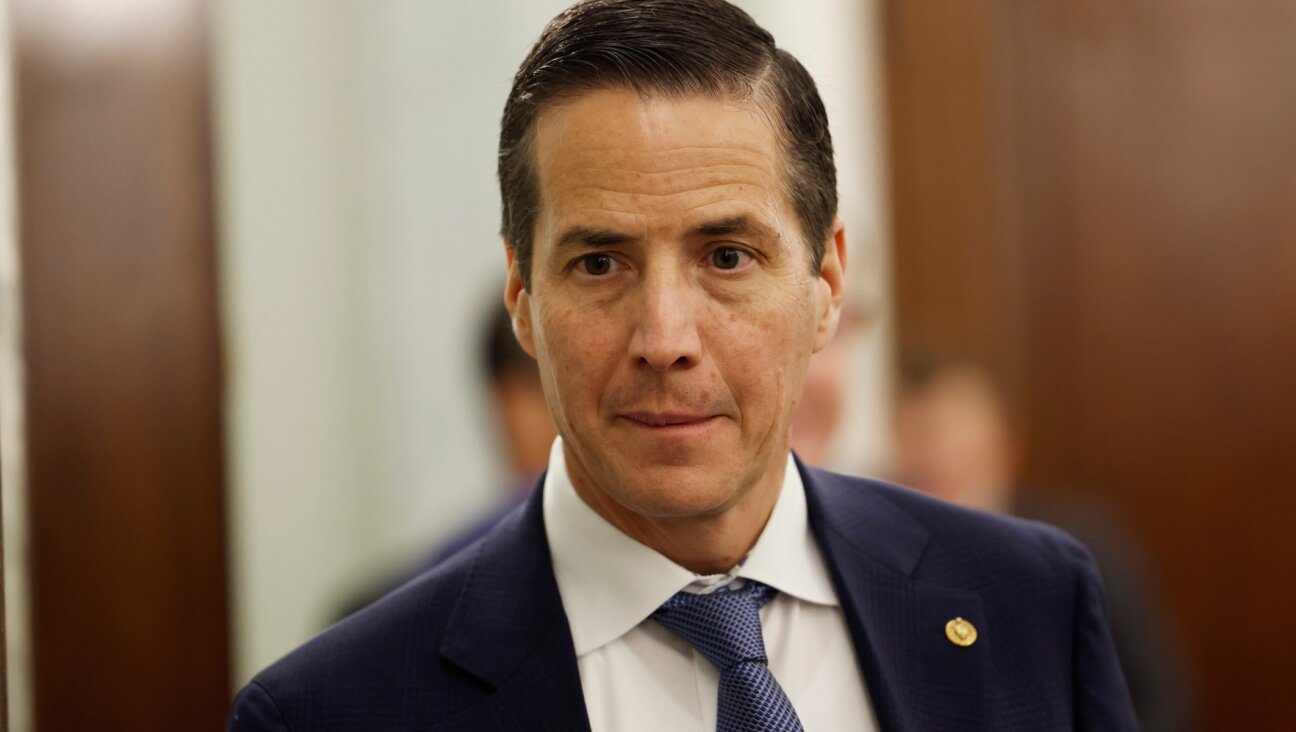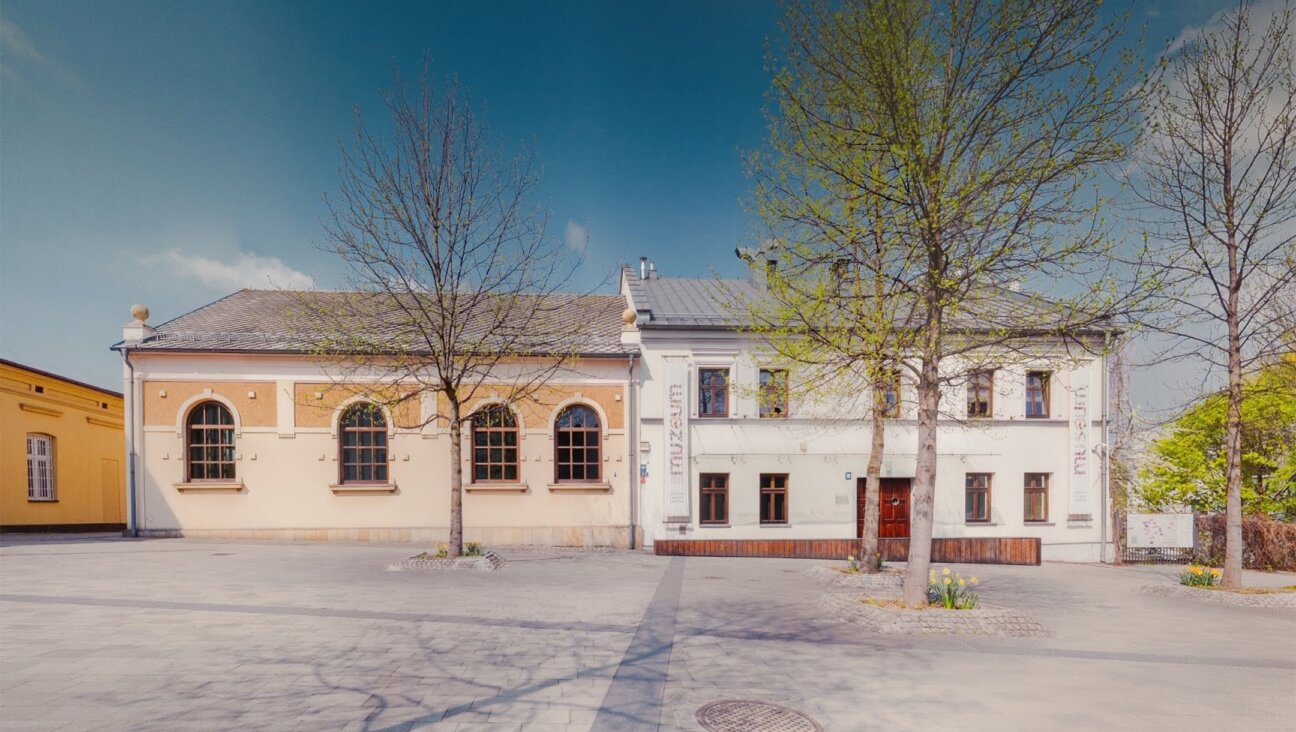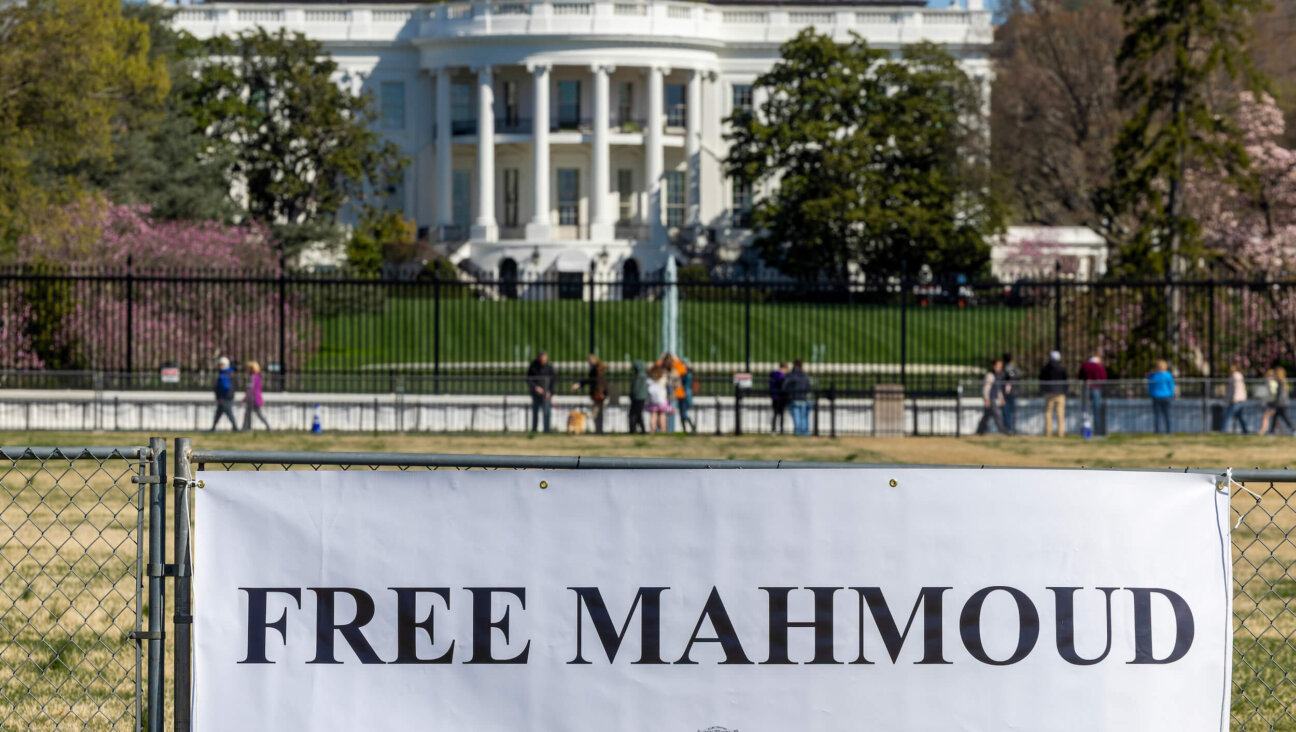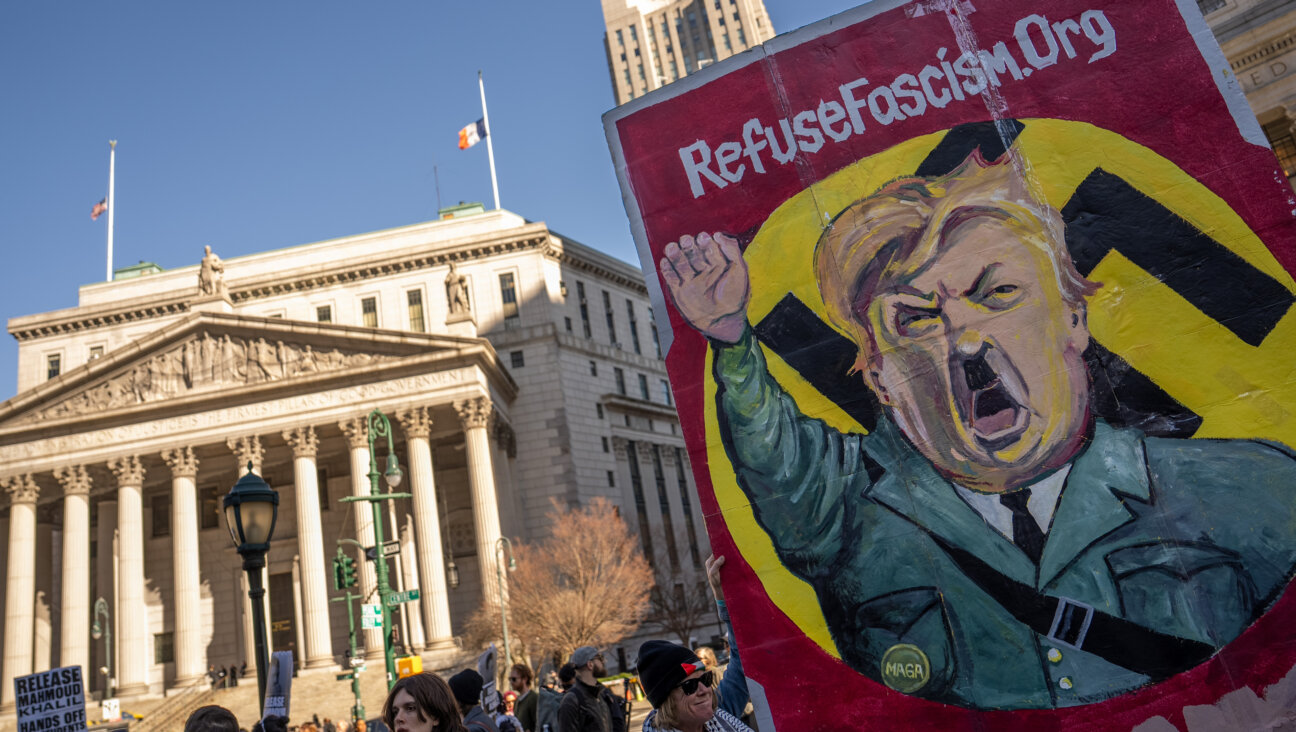Dancing With Scrolls
This week, the month-long Jewish High Holy Day season comes to a climactic close with the festival of Simchat Torah, the “Rejoicing in the Law,” the celebration of the yearly Jewish cycle of public Bible reading. And the timing could not be better.
The past few weeks have seen a dramatic rush of challenges to the accepted place of religion in the American public square. John McCain caused a storm in his presidential campaign by proclaiming that America is a “Christian nation.” The conservative Supreme Court surprised us on the opening day of its new session by dismissing two separate appeals from Christian groups seeking to expand their reach. And in the background, the “new atheists” are accelerating their drive to discredit the public value of religion altogether.
Each of these events cuts directly to a core element of Jewish protection and self-image in America: the strict separation of church and state. The principle that America may not “recognize an establishment of religion,” in the words of the First Amendment, is the bedrock on which Jews see their status resting as full and equal citizens. The public square must be neutral, we believe, if we are to have a place in it.
And so we stand up, most of us, to applaud the Supreme Court for keeping Christian prayers out of a public library. We deplore McCain’s clumsy pandering to the Christian right. A great many of us, secular and believer alike, take genuine pleasure when we hear atheists railing against God intoxication, as Jay Michaelson wrote in last week’s Forward.
And then, on Simchat Torah, we pour into the streets in our thousands to dance and sing ecstatically, holding our Torah scrolls aloft for all the world to see.
Dancing with the Torah on this holiday is an ancient custom, celebrating our love of Scripture. Taking it to the streets, as Jews do in cities around the world, is a newer practice. It was initiated in the 1960s by Jews in Moscow, as a way to demonstrate pride in their heritage and defiance of communist tyranny. For many of us, too, the holiday has more to do with pride than faith. And yet, it has become a prime example of how religion enters — literally — the public square.
Contradictory? Perhaps. We might excuse ourselves by citing Ralph Waldo Emerson’s dictum that a foolish consistency is the “hobgoblin of little minds.” It is important, we might say with a bit of poetic whimsy, to know how to hold two ideas in our minds at once. We live in a world of paradoxes.
And yet we make a habit of declaring that paradox and inconsistency are anathema to the defense of freedom. Government cannot be partly neutral toward religion, or we will become partly equal citizens. Can we insist on a strictly secular public square and then flood it with Torah scrolls, sukkahs and Hanukkah menorahs?
The simple answer is yes, of course we can. Separation of religion and state is merely one side of a coin called religious freedom; the obverse side is the right to practice religion freely. Christians adorn every empty wall each December with Christmas lights and plastic Santas. We’re entitled to our own modest versions. It’s possible to keep our rituals off government property and avoid sticking the taxpayer with our bills, and still express pride in who and what we are within the mosaic of American pluralism.
The deeper answer, alas, is that the lines are never that clear or simple. When we dance with the Torah in the street, we must ask the police to block traffic. When we build a new synagogue or erect an eruv, a Sabbath barrier, we must ask the zoning board for variances, often to the discomfort of the neighbors.
Purism in defense of liberty, trying to draw a bright, unambiguous line between government and religion, is a fool’s quest. Even with the best of intentions and the strongest commitment to constitutional democracy, there will always be new questions to answer and new conflicts to negotiate.
To be sure, good intentions and commitment to the Constitution don’t seem to be in great supply these days. The courts have been filled in recent years with an unprecedented wave of lawsuits by religious groups seeking to lower or flatten Thomas Jefferson’s wall of church-state separation. It often feels as though the very principle of religious freedom is under assault.
On the other hand, the battles are nothing new. When the Founders insisted on separating church and state in the First Amendment, they faced fierce opposition. Despite the separationists’ victory, prayer and Bible study were standard fare in public schools for the first 170 years of the Republic.
The wall of separation as we know it today is barely a half-century old, erected in a wave of legal actions brought by Jews and their liberal allies. If liberals are entitled to try and roll back the Republican tax cuts and restore the welfare state, surely conservatives are entitled to try and bring religion back to the public square.
We may fight them tooth and nail, and indeed we must, but let us not demonize them as would-be mullahs. The Bible that conservatives seek to post on courthouse walls is the same one that we danced with on our blocked-off streets and avenues this week.
Simchat Torah reminds us of the great gift that Judaism gave to humankind, the timeless document that commands us to pay our workers on time, to leave part of our crop for the poor and to love our neighbors as ourselves. We may disagree strongly with our neighbors on how best to honor that gift, but let us not forget to honor it. Rejoicing in the Law need not be a once-a-year event.
The Forward is free to read, but it isn’t free to produce

I hope you appreciated this article. Before you go, I’d like to ask you to please support the Forward.
At a time when other newsrooms are closing or cutting back, the Forward has removed its paywall and invested additional resources to report on the ground from Israel and around the U.S. on the impact of the war, rising antisemitism and polarized discourse.
Readers like you make it all possible. We’ve started our Passover Fundraising Drive, and we need 1,800 readers like you to step up to support the Forward by April 21. Members of the Forward board are even matching the first 1,000 gifts, up to $70,000.
This is a great time to support independent Jewish journalism, because every dollar goes twice as far.
— Rachel Fishman Feddersen, Publisher and CEO
2X match on all Passover gifts!
Most Popular
- 1

News A Jewish Republican and Muslim Democrat are suddenly in a tight race for a special seat in Congress
- 2

Fast Forward The NCAA men’s Final Four has 3 Jewish coaches
- 3

Fast Forward Cory Booker proclaims, ‘Hineni’ — I am here — 19 hours into anti-Trump Senate speech
- 4

Film & TV What Gal Gadot has said about the Israeli-Palestinian conflict
In Case You Missed It
-

Fast Forward Pennsylvania Jewish groups condemn ‘genocide’ slogan on Gisele Fetterman’s charity
-

Fast Forward A Republican senator called Chuck Schumer ‘Fuhrer’
-

Fast Forward The Ben of Ben & Jerry’s is asking Unilever to let his ice cream brand go
-

Fast Forward 80 years after Auschwitz, kosher food will be sold in its town of Oświęcim
-
Shop the Forward Store
100% of profits support our journalism
Republish This Story
Please read before republishing
We’re happy to make this story available to republish for free, unless it originated with JTA, Haaretz or another publication (as indicated on the article) and as long as you follow our guidelines.
You must comply with the following:
- Credit the Forward
- Retain our pixel
- Preserve our canonical link in Google search
- Add a noindex tag in Google search
See our full guidelines for more information, and this guide for detail about canonical URLs.
To republish, copy the HTML by clicking on the yellow button to the right; it includes our tracking pixel, all paragraph styles and hyperlinks, the author byline and credit to the Forward. It does not include images; to avoid copyright violations, you must add them manually, following our guidelines. Please email us at [email protected], subject line “republish,” with any questions or to let us know what stories you’re picking up.















